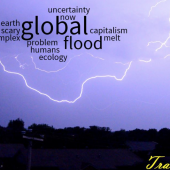
Abstract: The experience and impacts of climate change are uneven across generations, income classes, cultural groups, and geographical locations. Efforts to document and understand such experiences and related perspectives are increasing. Particularly among student groups, there is much attention on understanding how children and teenagers perceive climate change. However, until now, such perspectives of graduate students have not been represented in the literature. We, thus, surveyed and spoke with graduate students from a Geography, Planning and Environment Program at Concordia University in Montreal / Tiohtià:ke, Quebec, Canada. As a sample of next-generation decision makers, they shared fears, concerns, and recommendations consisting of both bio-physical and socio-political scientific dimensions. They expressed interdisciplinary perspectives related to climate change vulnerability, mitigation, and adaptation as they relate to water and extreme weather. Their fears included uncertainties pertaining to climate and human behaviors, and the possibility of surpassing global carrying capacities that could result in irreversible and lethal disasters. Considerations involved recognizing the vulnerability of the climate system and of humans, with a focus on socio-political injustices. Students placed a strong focus on emerging opportunities, such as fostering community development and investing in innovative technologies. They recommended power shifts, through paradigm awareness and reformed policies, where currently vulnerable populations access more decision-making power. They suggested fostering interdisciplinary and international cooperation to integrate climate science, involving age-appropriate modelling programs, into school curricula, and learning about human positionality and from resilient populations. We consider wicked problems, psychological distancing, and climate literacy as influential concerns in shaping climate change contexts and literacy. Our methodology allowed research participants to guide the study’s questions and foci with the use of a survey, collectively-generated word collages, and a focus group. The activities prompted space for the group to practice roleplaying as decision makers. As gentle form of Participatory Action Research, the methods could guide other groups to reflect upon and document their perspectives.
Continue Reading